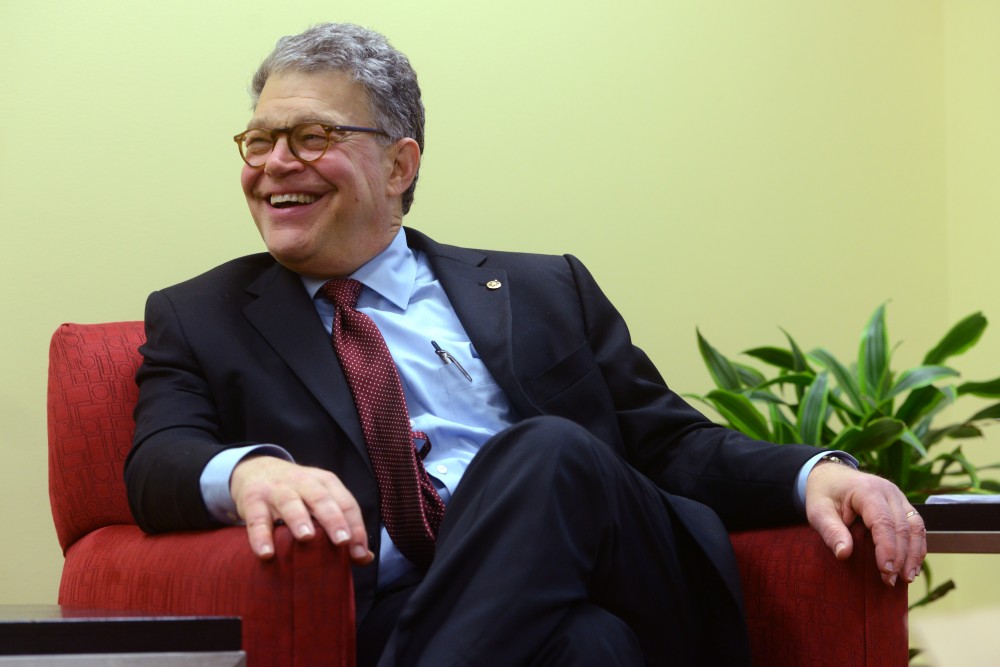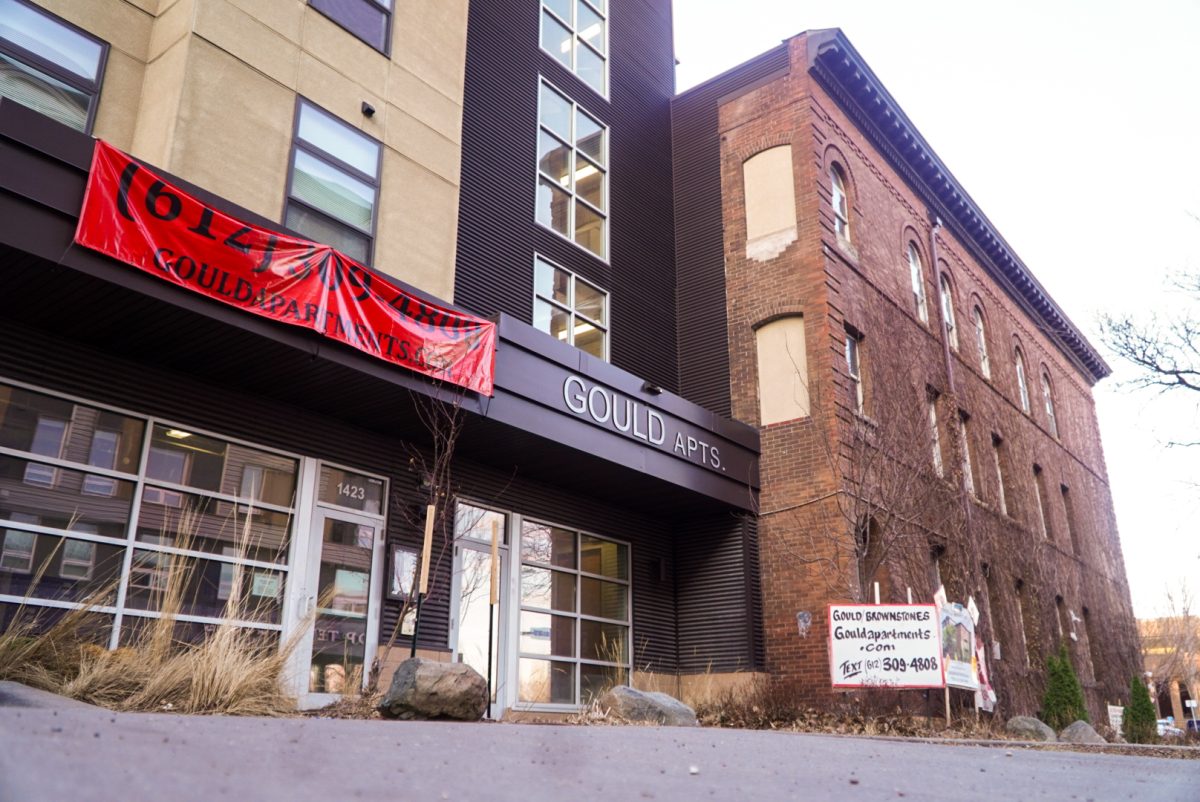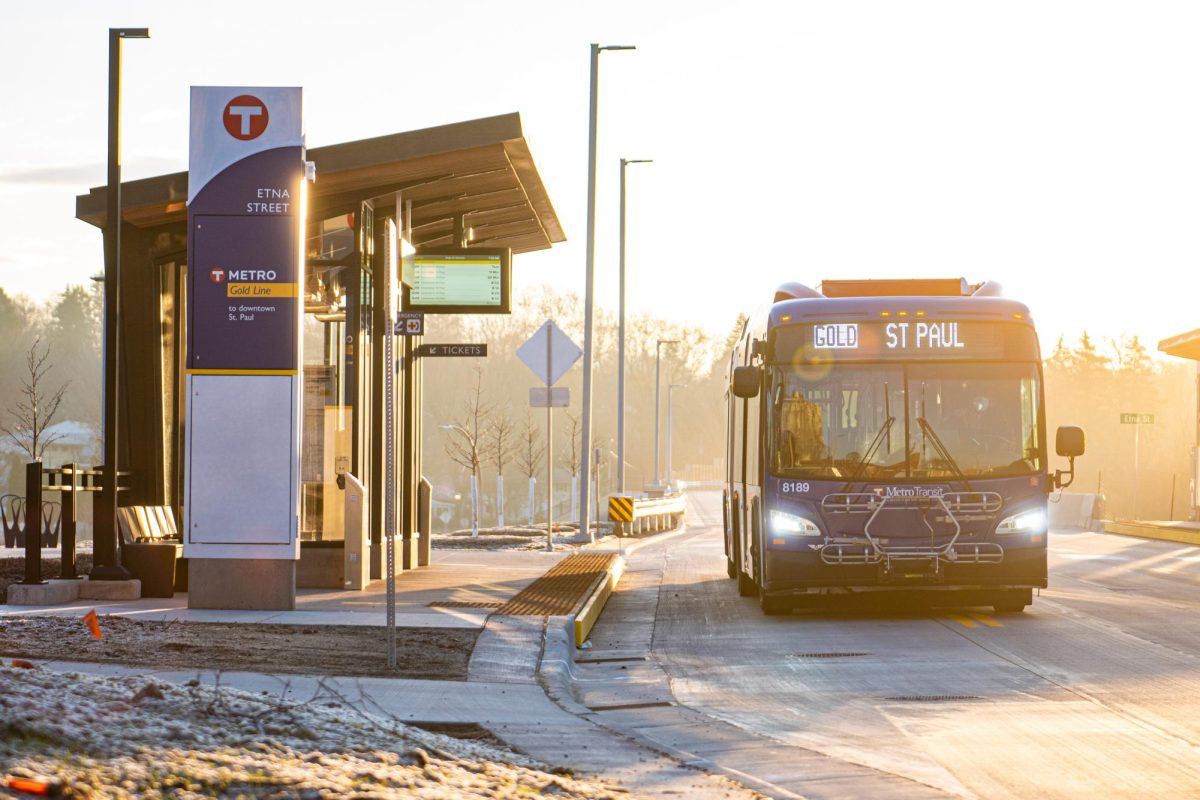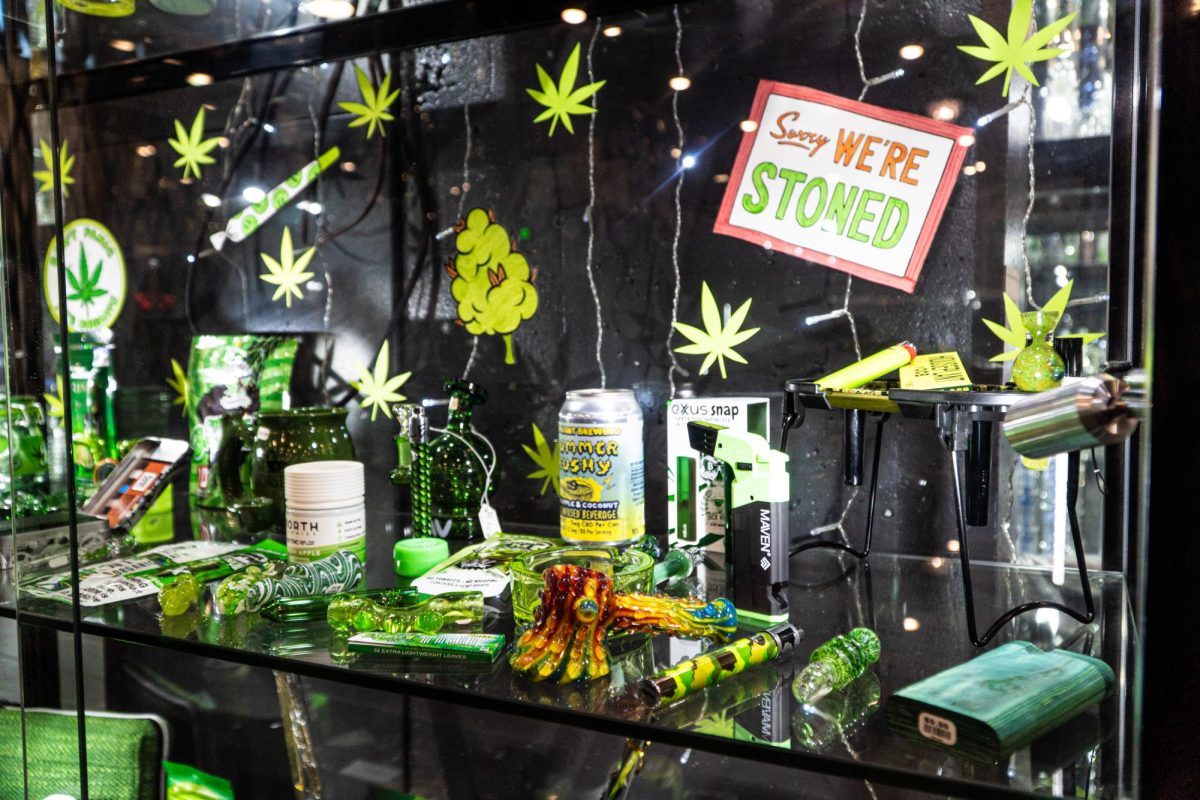With overwhelming applause, Sen. Al Franken was welcomed to the University of Minnesota’s Ted Mann Concert Hall stage Friday night to discuss his career and life.
University students and community members joined to hear Franken, who was promoting his new book, “Al Franken, Giant of the Senate,” speak about his experiences as a former comedian and current U.S. Senator.
“I spent a career learning how to be funny and then I had to learn how not to be funny,” Franken said at the event.
But humor wasn’t absent from the event hosted by the Humphrey School of Public Affairs. Franken detailed stories about congressional colleagues like Sen. Tom Coburn, whom he called “Dr. No.”
Franken said he tried to shed his comedian image once he got elected and worked to be a “workhorse rather than a showhorse.”
“When I got to the Senate, I wanted to prove to the people of Minnesota I was there to be serious,” Franken said.
The Humphrey School hosts about two dozen public events a year featuring national, state and city politicians to ensure the University community is educated about and engaging with the world of politics, said Larry Jacobs, director of the Center for the Study of Politics and Governance.

Franken said when he speaks to students, he tries to discuss the impact politics has on their lives and cited the recent decision to pull out of the Paris climate accords by President Donald Trump.
“Students here are going to feel the impact of that if we don’t correct that course,” he said.
Kristin Codling, a Minnesota State University Mankato alumna, said Franken is encouraging students to take an active approach to getting involved in politics.
University sophomore Clay McCarthy said he attended the event because he knew Franken would give a humorous, yet knowledgeable, talk on politics.
Jacobs, who moderated the discussion, said bringing elected officials to campus lets students stay in touch with issues politicians are dealing with, like jobs or student loans.
“Also, we wanted to make sure that elected officials know the concerns of students,” Jacobs said, adding that student involvement in these events is critical.








